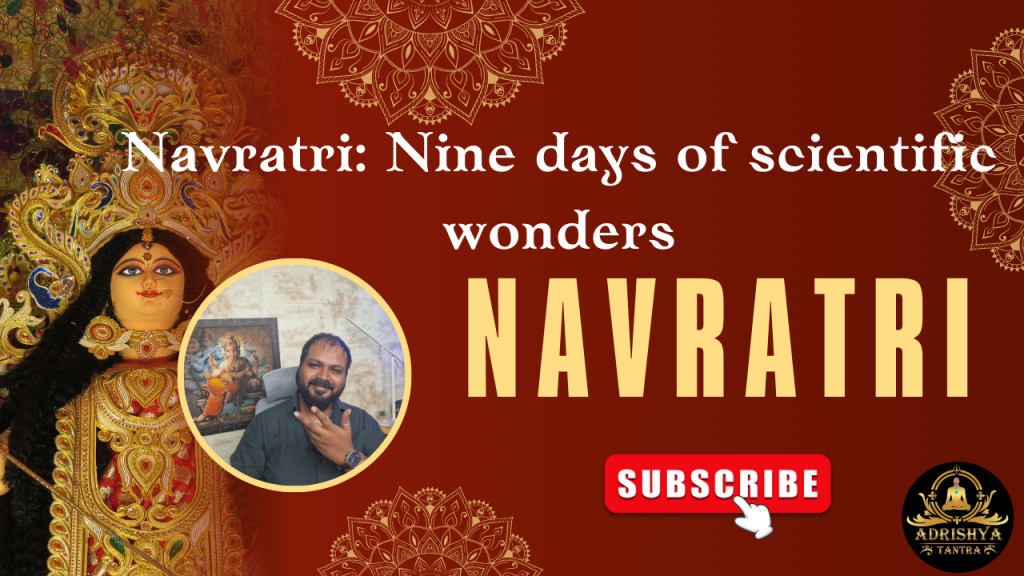
Navratri: Nine days of scientific wonders
Navratri, a vibrant festival celebrated with great enthusiasm across India, is not only a spiritual occasion but also a scientific phenomenon, deeply connected to energy and seasonal changes. This nine-night festival is not only a religious event but also a period that incorporates scientific principles and practices that can enhance physical, mental and spiritual well-being. Let us delve deeper into the science behind Navratri and find out what modern Indians can learn and implement from this ancient celebration.
Physical Rejuvenation Through Fasting:
Astronomical and seasonal changes: Navratri is associated with important astronomical events: the equinoxes and solstices, which are important in marking the change of the seasons. Each of the four Navratris is associated with a particular seasonal change, such as the beginning of summer or winter.
Detoxification and immunity: Seasonal changes, especially during Sharada Navratri, are often associated with a drop in immunity and an increase in infections. Fasting and eating a sattvic diet during Navratri works as a detoxification, relaxes the digestive system and increases the body’s immunity to fight diseases.
Mental Rejuvenation & Psychological Benefits:
Combatting negative emotions: Navratri is also a time for mental detoxification by focusing on eliminating negative emotions such as anger, lust, greed, and jealousy.
Psychological effect of fasting: Fasting is not just a physical activity but also a mental activity. It helps to strengthen the will, improve focus and provides a platform for introspection and self-discovery.
Spiritual Rejuvenation:
Connecting with cosmic energy: The nights of Navratri are considered powerful for spiritual practice. Devotees engage in meditation, prayers, and various rituals to connect with the divine feminine energy.
Balance between material and spiritual aspects: The practice of worshipping various forms of Goddess Durga symbolizes the victory of positive spiritual energy over negative worldly aspects.
What modern Indians can learn and apply:
Adopt the concept of detoxification:
Physical detox: Adopting the practice of intermittent fasting or periodic detox, especially during seasonal infections, can enhance physical health and immunity.
Mental detox: It is important to allocate time for mental health, practice mindfulness, and focus on eliminating negative thoughts and emotions.
Balancing lifestyle with nature cycle:
Sync with natural rhythms: Understanding and respecting natural and astronomical cycles and adjusting your lifestyle accordingly can promote overall well-being.
Seasonal eating: Eating a diet that suits seasonal produce and the climate can help improve digestion and immunity.
Spiritual Practices for Mental Peace:
Meditation and yoga: Incorporating spiritual practices like meditation and yoga into daily life can bring mental peace and clarity.
Connecting with God: Engaging in spiritual practices, regardless of religious beliefs, can provide a sense of purpose and direction.
Community and solidarity:
Celebrating together: Festivals like Navratri promote community bonding. Celebrating even in small ways promotes a sense of unity and togetherness.
Cultural Preservation: Maintaining traditions and understanding the science and knowledge behind them ensures they are preserved for future generations.
In short, Navratri, while being deeply rooted in spirituality and religion, offers a wealth of scientific knowledge and practices that promote well-being at multiple levels. Modern Indians, going through the hustle and bustle of contemporary life, can adopt these practices to enhance their physical, mental and spiritual well-being, leading a balanced and harmonious life.

